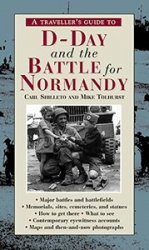The topic of this chapter might be understood in several ways. A great deal depends on whom we designate as the urban elite. (As we shall see, much also depends on how we understand “power.”) If by “the urban elite,” one understands the senatorial elite of the city of Rome, then we should unfold a tale of constitutional government
- established as an outcome of murderous civil war, but constitutional nonetheless
- gradually upended by its own army. That story is a traditional one, and its tellings have generally followed one or the other of two paths, each with its roots in classical historiography. The first concentrates on the ambitions of generals and magistrates, who in seeking to outdo their peers unwittingly abandon the safe solidarity of their class and sow the seeds of not only their own destruction, but that of the institutions that sustained their web of economic and political privilege. The second path pursues instead the soldiers themselves, who followed those generals and as citizens willingly bore arms against their own communities. In that tale, Rome the republic is undone by the very tools it had forged in the acquisition of empire; for the wealth of empire so corrupted the conduct of politics and culture of citizenship as to render the republic itself unsustainable.
But if we take “the urban elite” to denominate not, or not simply, the plutocrats of Italy, but the civic elites of the empire more generally, then we confront in this topic a twofold paradox. On the one hand, Rome and its armies ruled an empire, acquired for the most part by force of arms, and we would set ourselves a considerable burden to explain how even the elites of conquered territories might be conceived as competing for power with the soldiers of their suzerain. And on the other, writers both ancient and modern have traditionally construed the role of the army in provincial life at one or the other end of a single axis, as either a civilizing force in regions requiring Romanization, or a force itself to be corrupted by the seductive luxuries of city life. In neither of these latter models do cities’ relations with the legions impinge on imperial politics, except perhaps by accident, and, if that were all the story, we should then be seeking here to understand a competition where none in fact existed.
These varied narratives might be pursued discretely, and with profit; but their separation can be sustained only by regarding as autonomous economic, social, and cultural interests that in political action, in history, were not so. In itself, this is neither surprising nor cause for alarm. That historians, even narrative historians, engage in reductive modeling - drawing forth certain factors and highlighting their operation, in light of ceteris paribus assumptions - is, of course, now well theorized and often acknowledged. Scholarship so produced is, like all scholarship, necessarily partial; but it is through such processes of reduction, modeling, and abstraction that we as historians are able to construct arguments and explanations, even simply to view problems, in light of our own interests and concerns. Viewed from this perspective, the narratives described above, well and often told, might now profitably be dissected and their constituent parts recombined, so that they are not so much rehearsed as reconstituted, to see what light they might shed upon each other.




 World History
World History









